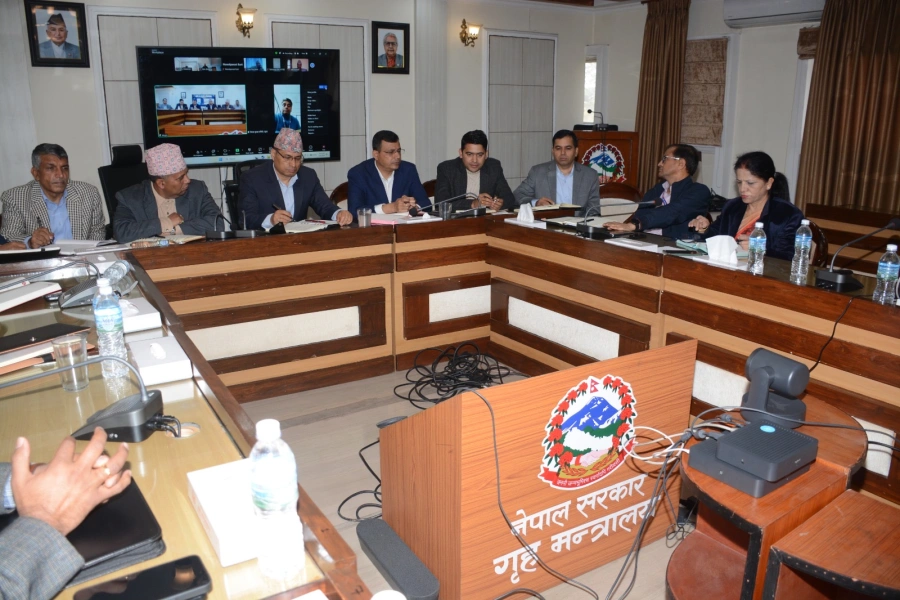SURKHET, Dec 30: The National Human Rights Commission (NHRC) of Nepal has found that all three levels of government have not implemented its directives issued seven months ago to protect and ensure the continuity of the traditional practices of the Raute community. Following a field study of the endangered Raute community, the NHRC had issued written instructions to the federal, provincial, and local governments.
Ramesh Kumar Thapa, the head of the NHRC’s Karnali Province office, said that the study outlined specific tasks for each level of government, detailing which responsibilities would fall to the central government, the Karnali Provincial Government, and local governments. The NHRC directed to establish a mobile police station for the security of the Raute community, declare a protected area, stop the sale and distribution of alcohol and tobacco products, and develop a curriculum for the Raute Khamchi language.
“Even the directives given to the central government have not been implemented yet,” said Thapa, “It is necessary for all stakeholders to be serious about the protection, safety and continuation of customary practices of the single nomadic and endangered community.”
Integrated policy to be introduced for Raute Community

Similarly, the NHRC instructed the provincial government and local governments to establish a mobile integrated service center for administration, registration, food, relief, nutrition, health etc. It was also instructed to formulate and implement the work plan and assign responsibility to a specific agency to work on the Raute community.
It has also been instructed to formulate and implement an integrated periodic action plan for the upliftment, empowerment and streamlining of the Raute community, and to assign responsibility to a specific agency to work on Raute issues.
Acting Chief Judge of Surkhet High Court, Krishnalal Bhattarai, said that the government should take seriously the instructions given by the NHRC regarding the Raute community. He said that we see the judicial part of the Raute community, it is necessary to implement other directives by the three levels of government and be serious for their safety, social justice and rights. He emphasized that the corridor through which the Rauté community moves should be designated as a special protected area, creating an environment that allows the continuation of their traditional practices.
The Chief District Officer of Surkhet, Shankar Hari Acharya, said that relocating a police post along with the Rautes community is currently not feasible. “There is no arrangement for a mobile police post,” he said, “However, wherever they move, we deploy plainclothes police officers.” He said that it is challenging to work without a law regarding the Raute community. If a law is enacted, we will implement it. So far, there has been a problem in implementation due to the lack of laws regarding the Raute community from all three levels of government.
The chairman of Guras Rural Municipality, Top Bahadur Bisi, said that a municipal police officer and a health worker would soon be assigned to serve the Raute community. Guras Rural Municipality has also issued temporary identity cards to the Raute community. Additionally, social security allowances provided by the government are being distributed through the municipality.
Hira Singh Thapa, the president of SOSEC Nepal, stated that there have been many changes in the seven years since they started working with the Raute community. “The Raute community is in a phase of transformation and they are now coming to hospitals for treatment, taking medicines, and washing their hands before eating,” he said, “It is necessary to continue with good practices and guide them towards improvement.”
He said that the population of the Raute community has been decreasing every year, emphasizing the need to focus on promoting widow remarriage. Currently, the population of the nomadic Raute community stands at mere 134, of which 23 are single women.








































